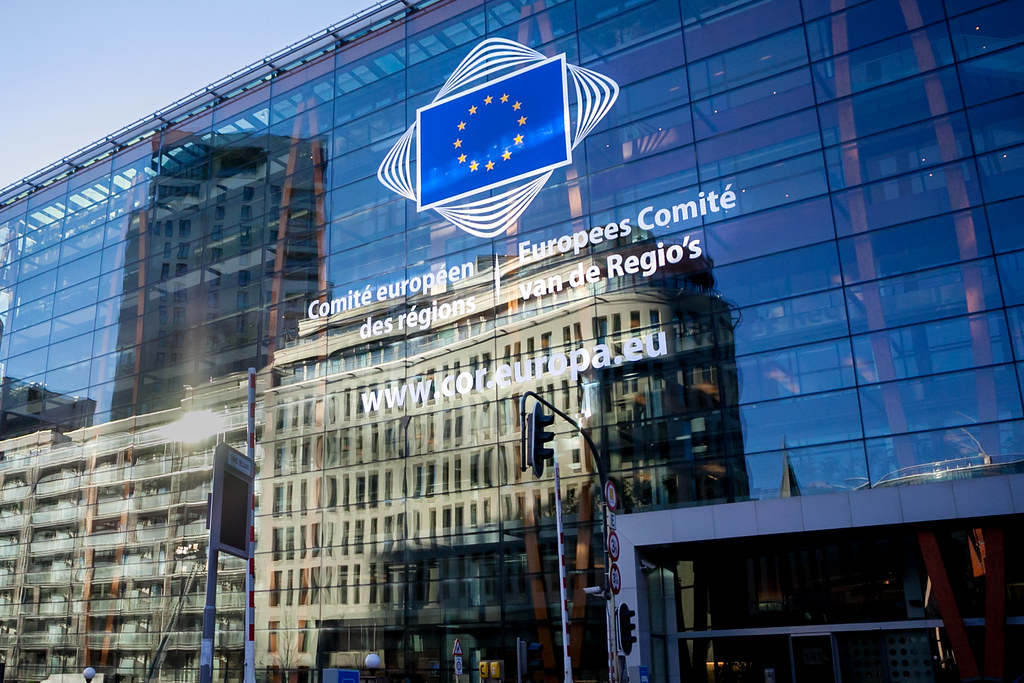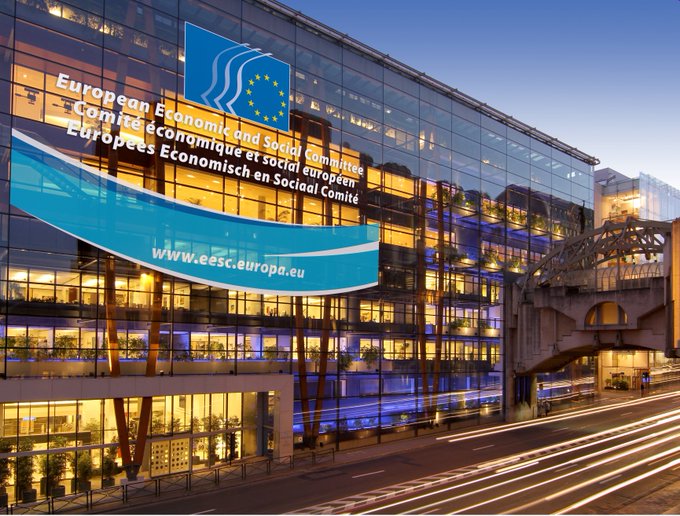Committee of Regions & European Economic and Social Commitee

1) CoR
Quick definition
The Committee of the Regions is made up of 329 members representing the regional and local authorities of the 27 Member States of the European Union. It issues opinions sought on the basis of mandatory (as required by the Treaties) and voluntary consultation and, where appropriate, own-initiative opinions. Its members are not bound by any mandatory instructions. They are independent in the performance of their duties, in the European Union’s general interest.
What does the CoR do?
The CoR gives regions and cities a formal say in EU law-making ensuring that the position and needs of regional and local authorities are respected.
- The European Commission, the Council of the EU and the European Parliament must consult the CoR when drawing up legislation on matters concerning local and regional government such as health, education, employment, social policy, economic and social cohesion, transport, energy and climate change.
- If this is not done, the CoR can bring a case before the Court of Justice.
- Once the CoR receives a legislative proposal, it prepares and adopts an opinion and circulates it to the relevant EU institutions.
- The CoR also issues opinions on its own initiative.
Composition
The CoR members are elected representatives serving in local or regional authorities. Each country nominates members of its choice who are appointed for renewable five-year terms by the Council of the EU. The number of members per country depends on the size of that country's population.
Members from one country form the national delegation which reflects the political, geographical, regional and local balance of their country.
The CoR appoints a president from among its members for a two-and-a-half-year term.
How does the CoR work?
The CoR appoints a rapporteur (one of its members) who consults stakeholders and prepares the opinion. The text is discussed and adopted by the CoR commission in charge of the policy area concerned. The opinion is then presented to all members in plenary session who vote to amend and adopt it. Finally, the opinion is shared and communicated to all relevant EU institutions.
There are up to 6 plenary sessions per year, adopting opinions that cover 50 to 80 EU legislative projects.

2) EESC
Quick Definition
The European Economic and Social Committee (EESC) is a consultative body of the European Union, based in Brussels. It is composed of 329 members. Its opinions are required on the basis of a mandatory consultation in the fields established by the Treaties or a voluntary consultation by the Commission, the Council, or Parliament. It may also issue opinions on its own initiative. Its members are not bound by any instructions. They are to be completely independent in the performance of their duties, in the EU’s general interest.
What does the EESC do?
It gives the interest groups a formal say on EU legislative proposals. Its three key tasks are to:
- ensure that EU policy and law are geared to economic and social conditions, by seeking a consensus that serves the common good
- promote a participatory EU by giving workers' and employers' organisations and other interest groups a voice and securing dialogue with them
- promote the values of European integration, and advance the cause of participatory democracy and civil society organisations
Composition
EESC members represent the variety of civil society organisations across Europe, including businesses, trade unions and other interests. They are nominated by national governments and appointed by the Council of the EU for renewable 5-year terms. The number of members per country depends on that country's population.
The EESC elects its President and 2 Vice-Presidents for two-and-a-half-year terms. Members belong to one of three groups:
- employers
- workers
- other interest groups (e.g. farmers, consumers)
How does the EESC work?
The EESC is consulted by the European Parliament, the Council of the EU and the European Commission on a variety of subjects. It also issues opinions on its own initiative.
Members work for the EU, independently of their governments. They meet 9 times a year. Opinions are adopted by a simple majority vote.
Meetings are prepared by the EESC's specialised sections and the consultative commission on industrial change. The EESC's specialist think-tanks (known as 'observatories') track the progress of EU strategies.
The EESC keeps in touch with regional and national economic and social councils throughout the EU - mainly to share information and discuss particular issues.
Source: EP Website, 2023
